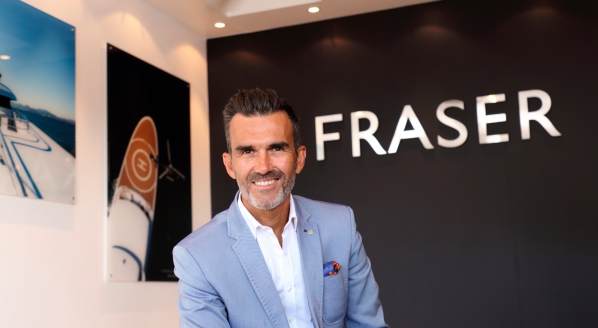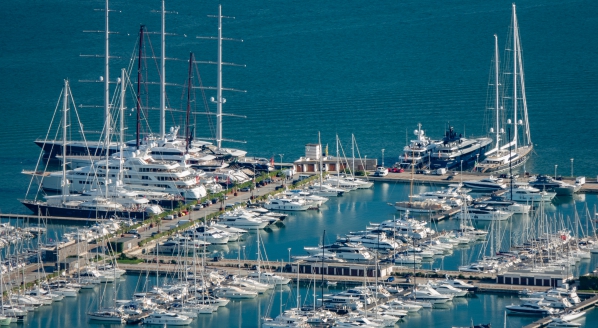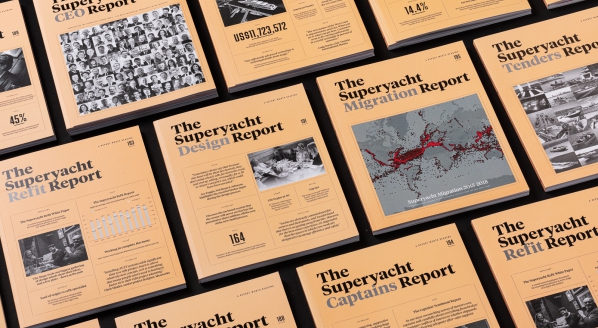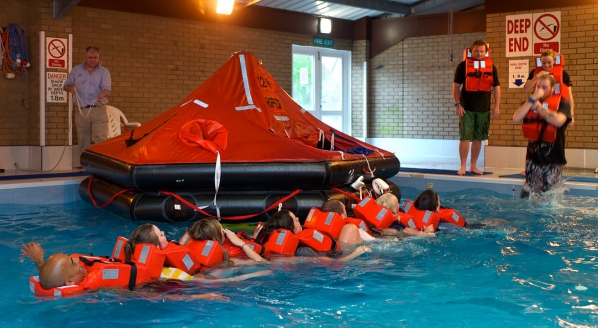Force majeure…or perhaps not
SuperyachtNews speaks with John Leonida about yachting’s popular new throwaway phrase…
Before the onset of the COVID-19 pandemic, the notion of force majeure would have meant very little to a great many people. Until recently, some will have never encountered the term, others may have only encountered it in passing and thought they knew what it meant. However, today, one can hardly discuss the state of the industry in light of the COVID-19 pandemic without mention of force majeure. As such, the term is now being bandied around the industry like a cure-all for contractual woes. The truth, however, is rather more complicated.
“There have been a number of industry commentators recently who have been throwing around the phrase force majeure,” starts John Leonida, partner at Clyde & Co. “The issue is that everyone is throwing around the phrase force majeure as though it is a term of art and can be applied broadly without question. For example; a shipyard has ceased production citing the virus, therefore it is clearly a force majeure event and the shipyard calls it as such. The reality is so much different if the contract that governs your relationship is subject to English law.
“Force majeure does not exist as a doctrine of English law."
“Force majeure does not exist as a doctrine of English law. It only exists as a contractual term if it been expressly agreed between the parties. The difficult thing is that a force majeure definition will vary from contract to contract. It is certainly the case that in certain jurisdictions force majeure is written into their national laws, but that will not necessarily spill over into all contracts and certainly not English law contracts. However, people are misinterpreting the term and incorrectly believing that, simply by dint of circumstances being out of their control, force majeure can be applied as a general principle.”
In English law governed contracts, force majeure is a contractual term that regulates the consequences of supervening events beyond the party’s control. Therefore, the interpretation is based on what the contract actually says, in other words, what the clause specifies as being the events that constitute a force majeure scenario. The trouble is that a global pandemic event, such as COVID-19, has never occurred during the lifetimes of the individuals that draft today’s contracts. As a result, stipulations for a global pandemic constituting force majeure have not, in most cases, been written into the contracts. Some contracts have general sweep up language which will try to catch anything which impacts on the ability of one party or another anything that affects the performance of a contract. In the past a number of clients had struck that language out of drafts as being too wide. Furthermore, many English contracts don’t even include a force majeure clause and, therefore, reliance on force majeure as a principle is not possible.
"...people must be wary of using indefensible legal claims."
“What I am hearing is that a number of stakeholders within the superyacht industry are claiming force majeure and the response from clients, who have strong legal representation don’t forget, has been something along the lines of: ‘Yes we understand the issue, we accept that there may be consequences, we appreciate that you have an issue, but we don’t accept that this is a force majeure cause’,” continues Leonida. “To claim force majeure is a natural commercial response to these unprecedented events, and I don’t believe anyone is trying to be deliberately duplicitous or clever. Nevertheless, people must be wary of using indefensible legal claims. The force majeure event must be a defined event in a force majeure clause AND it must directly affect performance of the contract .”
In some cases, the uniqueness of the COVID-19 landscape has led clients, be they new build or charter, to adopt a moral and somewhat philosophical contractual position. Unlike typical delays or charter cancellations, there is no particular entity to apportion blame to. However, Leonida warns that as the financial impact of the pandemic continues to deepen, stakeholders must not mistake their clients’ moral positions for their commercial or legal positions. While many clients have been willing to adopt a wait-and-see approach, many others will be hoping to recoup their investments where possible.
"...we will invariably see a whole range of responses from clients.”
“There are instances where the people chartering the yachts don’t know what their business positions will look like in the aftermath of COVID-19,” explains Leonida. “The reality is, if people are of a similar mind to the other parties engaged in a contract, whatever their actual legal positions may be, they may choose to take a different commercial position, which could be perceived as taking a moral position, in so far as they don’t exercise the rights that they have as a matter of law. However, we will invariably see a whole range of responses from clients.”
Furthermore, the complexity of force majeure clauses runs deeper than those associated with a single contract. As referenced above, force majeure clauses vary from jurisdiction to jurisdiction, as do the jurisdictions used within any superyacht build. It is true that the main superyacht build contract will be governed by a specific law and jurisdiction, but it doesn’t follow that all the other contracts will be governed the same law or force majeure provisions. This will throw up conflicts.
“As well as looking at the force majeure clause in the specific build contract, you have to look at the specific force majeure clause in any ancillary contracts that an owner or builder enters into. Sometimes there will be a disconnect between, for example, a build contract under English law and the various subcontracts that may fall under Dutch or Italian law, or any other jurisdiction for that matter,” explains Leonida. “You may have a situation where a builder will have one approach to force majeure in respect of the build but will be faced with an entirely different situation with subcontractors. The two may not speak to each other A legitimate force majeure invoked by a supplier might not be capable of being passed through to a builder to rely upon in the main build contract. Or indeed, what happens if the owner and designer cannot progress a design and the owner still has obligations to take design decisions under the build contract?”.
As a final note, Leonida comments on the possibility of stakeholders claiming force majeure, as a result of COVID-19, as a means of legitimising failing or failed contractual obligations when it was already clear that the obligations were not going to be met. The courts won't allow force majeure to be a get out jail free card when the party was already in breach. Leonida warns that, should any stakeholders be attempting this, the likely hood of the client adopting the ‘moral position’ may give way to them leaning on their commercial nous and legal rights.
Profile links
NEW: Sign up for SuperyachtNewsweek!
Get the latest weekly news, in-depth reports, intelligence, and strategic insights, delivered directly from The Superyacht Group's editors and market analysts.
Stay at the forefront of the superyacht industry with SuperyachtNewsweek
Click here to become part of The Superyacht Group community, and join us in our mission to make this industry accessible to all, and prosperous for the long-term. We are offering access to the superyacht industry’s most comprehensive and longstanding archive of business-critical information, as well as a comprehensive, real-time superyacht fleet database, for just £10 per month, because we are One Industry with One Mission. Sign up here.
Related news

A Darwinian moment - the evolution of superyachting
Our chairman looks ahead to what a brighter, post-COVID-19 future could look like
Business

"There will be positives we can draw from this"
Fraser Yachts CEO Raphael Sauleau discusses the short-term and long-term impacts of COVID-19 on the industry
Owner

The first signs of light at the end of the tunnel
Porto Mirabello is confident and positive for the future
Business

SuperyachtNews COVID-19 Advisory – Spain extends state of alarm
Miguel Ángel Serra, partner at Albors Galiano Portales, provides an update on the situation for yachts in Spain…
Business

Unfettered access for all
The Superyacht Report and SuperyachtNews Premium are now free to access throughout the COVID-19 crisis
Business

SuperyachtNews COVID-19 Advisory – MCA issues certification guidance
The MCA’s COVID-19 contingency plan provides exemptions for those renewing or updating STCW training
Crew
Related news
"There will be positives we can draw from this"
5 years ago
Unfettered access for all
5 years ago
NEW: Sign up for
SuperyachtNewsweek!
Get the latest weekly news, in-depth reports, intelligence, and strategic insights, delivered directly from The Superyacht Group's editors and market analysts.
Stay at the forefront of the superyacht industry with SuperyachtNewsweek




